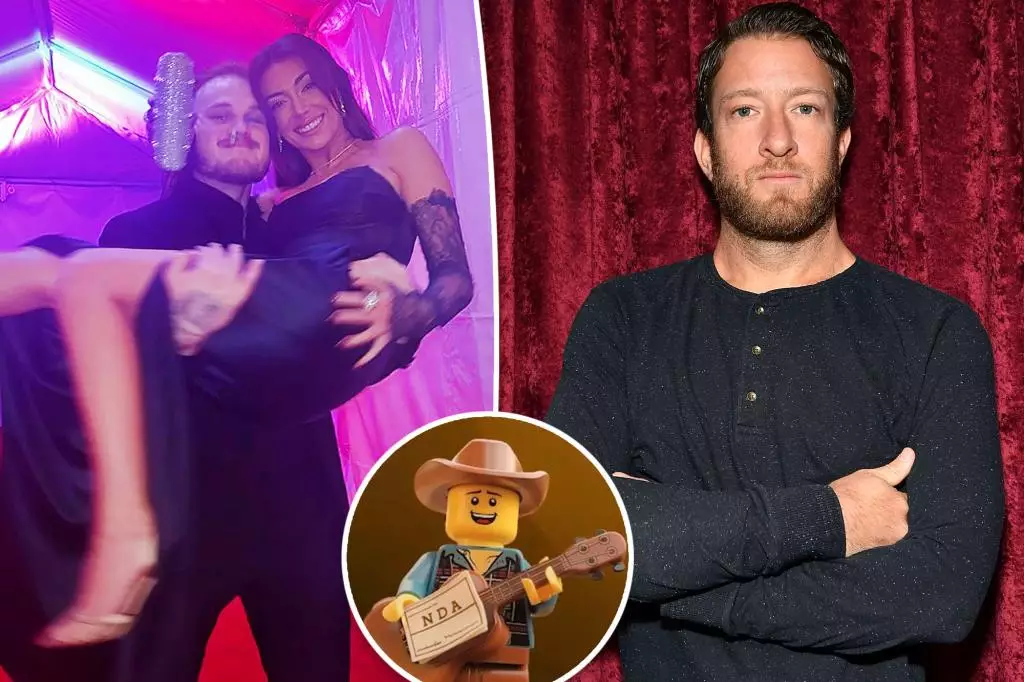In a world increasingly dominated by internet personalities, few rivalries have ignited as much controversy and entertainment as that between Dave Portnoy, founder of Barstool Sports, and country singer Zach Bryan. Recently, the feud has escalated to a musical level, with Portnoy releasing a scathing diss track targeting Bryan and his alleged actions surrounding a broken relationship with social media influencer Brianna “Chickenfry” LaPaglia. The volatile mix of personal grievances, public opinion, and musical talent is not just a spectacle; it’s a reflection of the era’s unique relationship with celebrity culture and social media engagement.
Portnoy’s latest song, labeled as “Country Diddy,” employs sharp lyrics that lambaste Bryan, drawing a parallel between the young country star and hip-hop mogul Sean “Diddy” Combs, who recently faced serious legal challenges. The lyrics are filled with pointed criticism, suggesting that Bryan has employed tactics reminiscent of those associated with high-profile litigants: “All these NDAs you sound like a country Diddy.” In doing so, Portnoy exposes the manipulative undercurrents that often accompany modern celebrity relationships, particularly when financial gain and reputation are at stake.
What makes this diss track stand out is Portnoy’s unapologetic delivery. Lines like “Someone tell your cheap lawyers I don’t give a f*ck” strike an aggressive tone, reflecting not only his disdain for Bryan’s perceived attempts to suppress criticism but also the broader theme of silencing in the entertainment industry. This is not merely a musical retort; it’s a battle for public narrative amidst personal strife, showcasing how profoundly interconnected celebrity lives have become with their public personas.
Brianna “Chickenfry” LaPaglia is not just a passive figure in this saga; she is central to the narrative driving the conflict. Her statements on social media regarding Portnoy’s diss track—describing it as “lethal”—underscore the gravity of the situation and her willingness to engage in the conversation. LaPaglia claims that Bryan attempted to financially suppress her silence following their breakup, alleging that he offered substantial sums to prior partners to maintain complicity about their experiences. This revelation serves to highlight the often hidden dynamics between celebrity relationships and financial manipulation.
LaPaglia’s refusal of a $12 million offer from Bryan to keep quiet about their time together compels public discussions about the ethics of financial settlements in personal disputes. Her candid sharing of purported emotional abuse during the relationship adds layers of complexity to this feud, demonstrating how personal trauma can intersect with public discourse—further fueling the flames of Portnoy’s lyrical fire.
The ongoing conflict between Portnoy and Bryan encapsulates a growing trend in popular culture where public feuds serve not only as entertainment but also as gateways for deeper conversations around mental health, emotional abuse, and the power dynamics inherent in celebrity culture. Audiences today are more engaged than ever, often choosing sides in these public disputes and becoming emotionally invested as they would in a fictional drama.
Moreover, Portnoy’s vocal commitment to releasing multiple diss tracks signals an era where entertainment is driven by sensationalism and conflict. “I will write 10,000 diss tracks,” he stated, illustrating a relentless pursuit of commentary in the face of adversity. The act of turning a personal dispute into musical content invites fans to take part in a narrative that mixes humor, conflict, and social critique.
The latest episode in the feud between Dave Portnoy and Zach Bryan reveals much about contemporary celebrity relationships, the power play involved, and the influence of social media in shaping public personas. It raises vital questions about accountability and transparency within the entertainment industry. As this battle of diss tracks unfolds, the lines between artists and their audiences continue to blur, paving the way for new dynamics in celebrity culture that blend entertainment, personal strife, and societal critique. Thus, while some may view these diss tracks simply as entertainment, they are, in fact, a fascinating commentary on the complexities of modern fame and the often messy realities that lurk beneath the surface.

